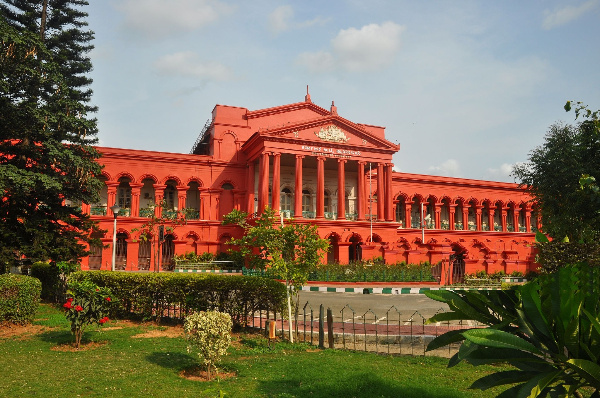The Karnataka High Court has stated that the Appellate Authority under the POSH Act can issue a temporary order to pause the final report from the Internal Committee.

The Karnataka High Court has determined that an Appellate Authority under the POSH Act has the implied ability to issue a temporary stay on an Internal Committee Report. The Court reviewed a Writ Petition challenging the final report of the internal committee and a transfer order. Justice Sunil Dutt Yadav noted, “The Act and its Rules do not specifically mention interim relief. However, the Act does not prevent the appellate authority from issuing an interim order. Since the appellate authority can annul the contested proceedings, it can be understood that it also has the implied power to issue a temporary stay.”
The Petitioner questioned the validity of the internal committee’s final report regarding Sexual Harassment of Women at the Workplace and contested the transfer order that followed the Committee’s recommendation. The Petitioner claimed he was hired as a Finance Officer on a contract basis and that a complaint of sexual harassment was falsely lodged against him by the 2nd Respondent during his employment. He argued that the internal committee’s final report led to the employer’s transfer order.
The petitioner stated that in the appeal to the Appellate Authority, a request for a stay was made, but no orders have been issued so far. The Authority only sent a notice regarding the appeal without considering the request for an interim order, which has led to significant harm to the petitioner. The petitioner’s lawyer argued that according to Section 18 of the Sexual Harassment of Women at Workplace (Prevention, Prohibition and Redressal) Act, 2013, and Rule 11 of the related Rules, the appellate authority does not have the power to consider stay applications.
The Court highlighted the petitioner’s legal concern, noting that if the authority does not consider the stay application after an appeal is filed, genuine grievances may remain unresolved for a long time without any interim relief. The Court pointed out that the law does not explicitly prevent the appellate authority from issuing interim orders. The Court remarked that since there is no prohibition on granting interim relief, the authority could have the power to do so. The Court referenced a Supreme Court decision in the case of Income Tax Officer, Cannanore vs. M. K Mohammed Kunhi, which discussed the powers of the Income Tax Appellate Tribunal. In that case, the court found that even though there was no specific power to grant a stay on tax demands, such authority was inherent and could be implied in the powers related to deciding the appeal.
The Court stated that every Court has the necessary powers to make its orders effective, following the principle that if something is granted, everything needed for it to exist is also granted. This was applied in the Apex Court case of Smt. Savitri vs. Sri. Govind Singh Rawat, where the Court allowed the consideration of an interim order in a Section 125 application before the Magistrate. The Court concluded that the appellate authority can consider interim applications even without a specific rule for granting them. The writ petition was then resolved.
Cause Title: Sri Nagaraj G K vs. Addl. Labour Commissioner NC









